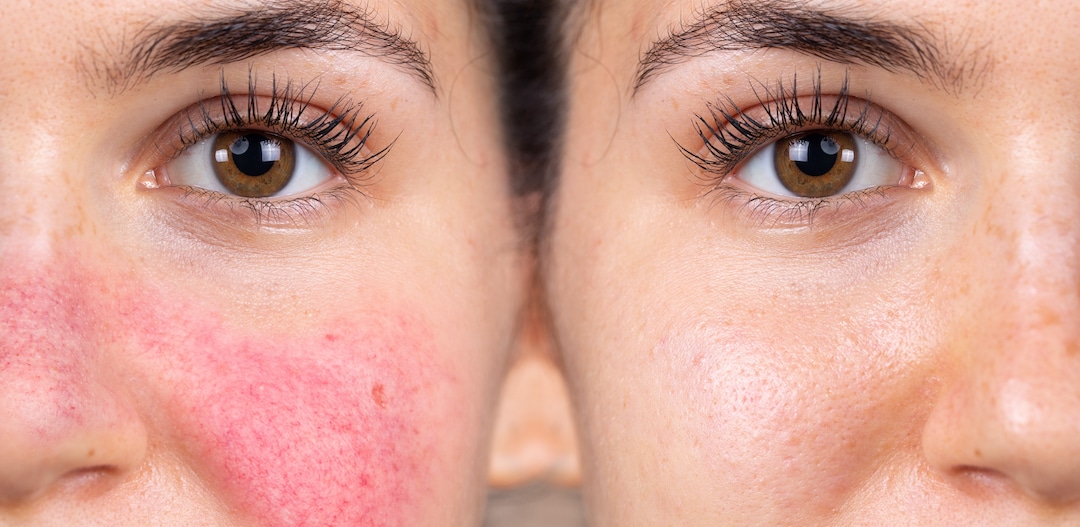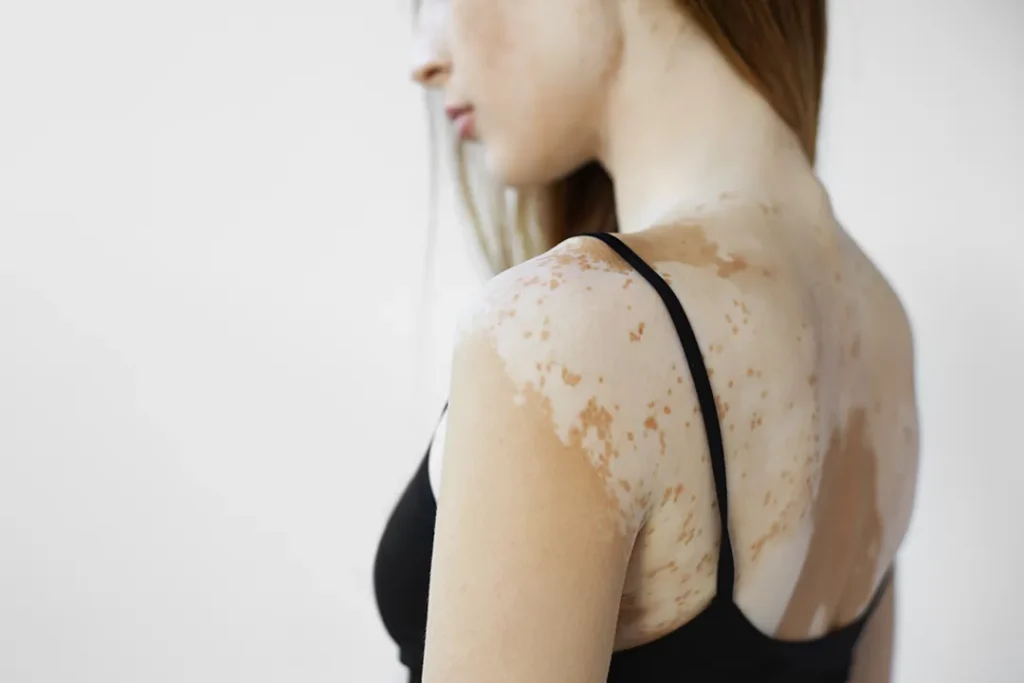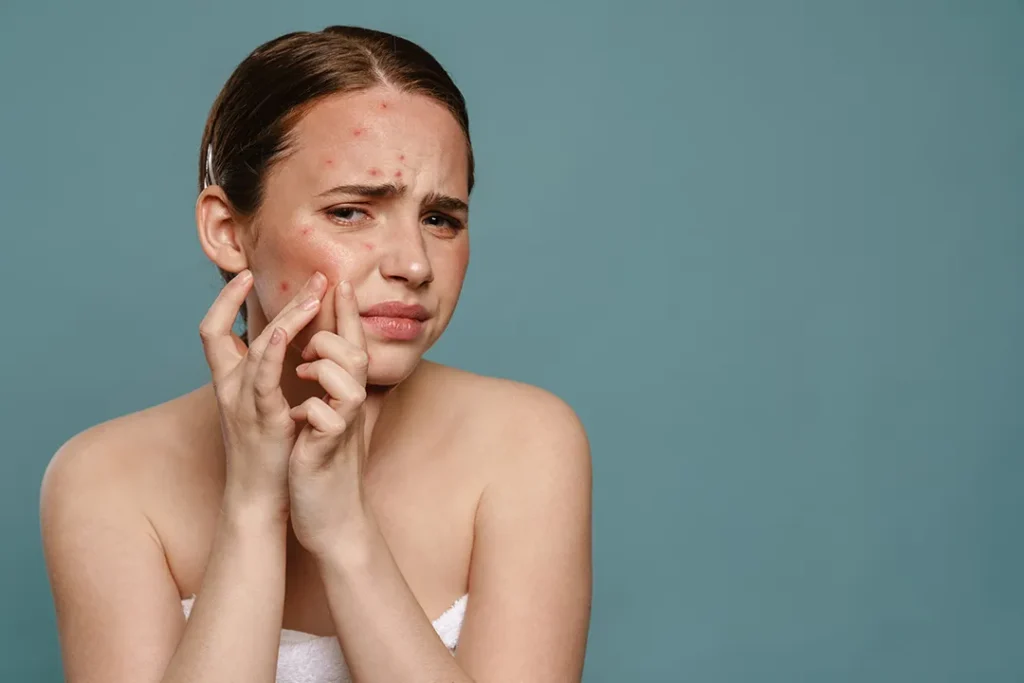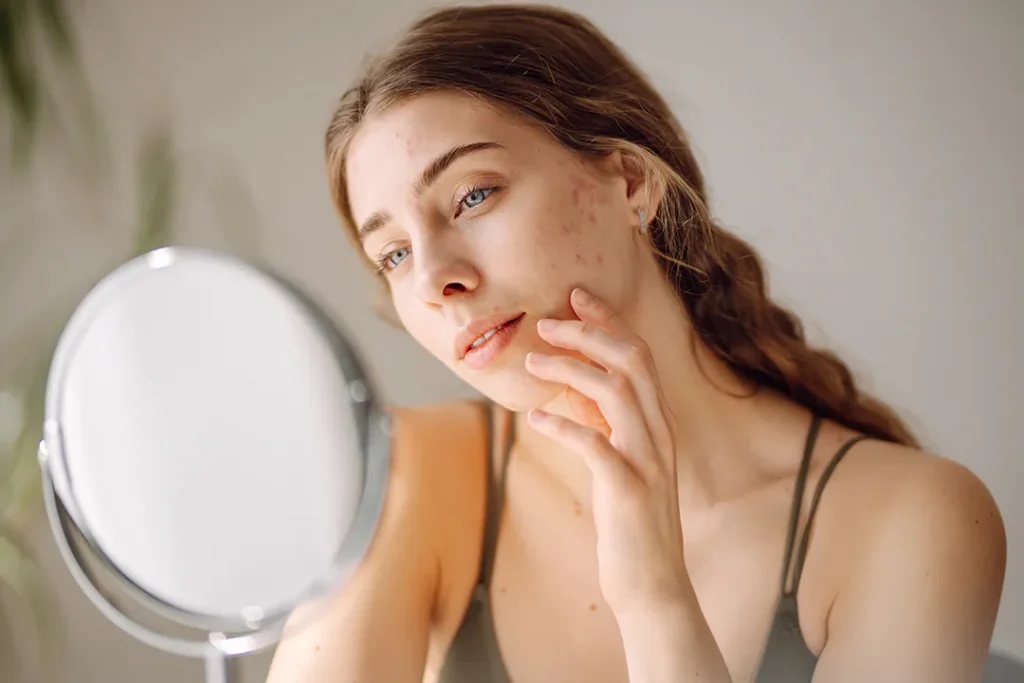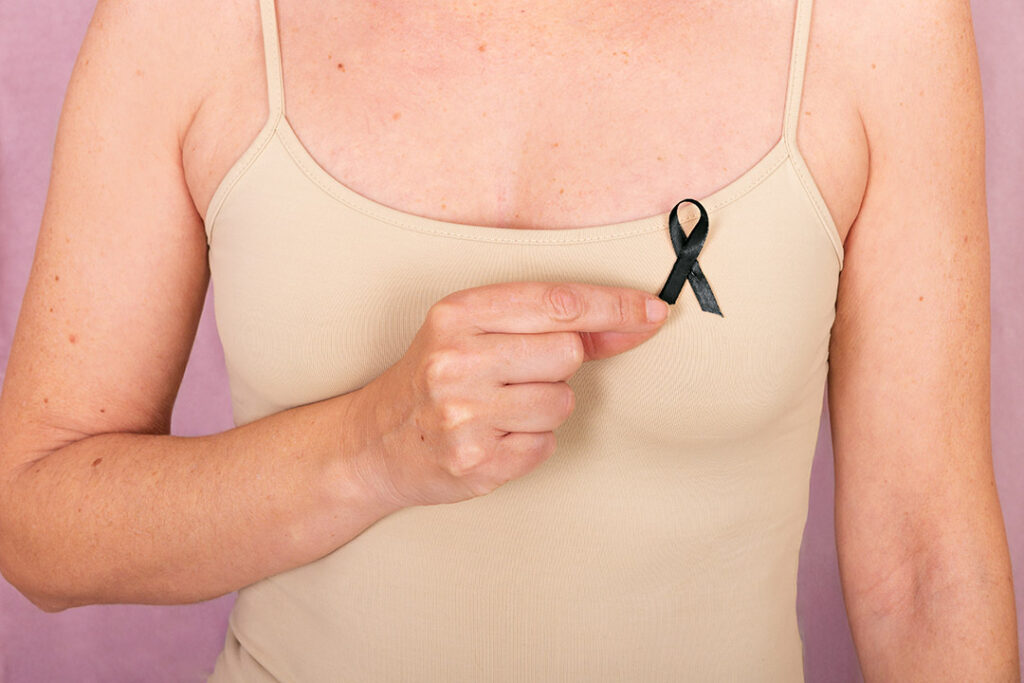4 Types of Rosacea
Rosacea is an umbrella term for a skin condition that is broken down into four main sub-types:
- Erythematotelangiectatic Rosacea (ETR) – People who suffer from this type of rosacea find themselves flushing heavily after eating, drinking, or certain other activities. Unlike typical skin flushing, this redness can lead to broken blood vessels called telangiectasias that become permanently visible.
A gentle concealer like Synergie Minerals Concealer can help cover facial redness. “The formula of anti-irritant minerals and botanicals make it a good choice for people with ETR,” says Dr Austin.
- Ocular Rosacea – One of the most dangerous forms of rosacea, ocular rosacea can cause painful dry eye, burning, recurrent styes, and swollen eyelids. In cases of severe inflammation, ocular rosacea can damage the cornea. This form of rosacea can be treated with oral antibiotics. “It is important not to further irritate the eye area during treatment,” reports Dr Austin.
For rosacea patients who still want to wear make-up, Dr Austin recommends Mineral Whip, a creamy foundation that is suitable for rosacea-plagued skin.
- Papulopustular Rosacea (PPR)– This type of rosacea is what most people think of when they think of rosacea. It frequently appears on the face of middle-aged women. PPR is most commonly mis-identified as acne because it leads to skin bumps and pimples.
Sun protection is an essential part of anyone’s skin care regimen, especially those with rosacea. In addition to a good sunscreen, Vitamin B3 supplements can reduce redness and soothe skin inflammation. “Another benefit of B3 supplements is their positive effect on treating and preventing non-melanoma skin cancers,” says Dr Austin.
- Phymatous Rosacea – This form of rosacea develops over time, usually affecting affecting the cheeks and the nose. This is primarily characterised by a thickening of the skin and enlargement of the sebaceous glands. The most common form of phymatous rosacea is Rhinophyma.
Treatment for Phymatous Rosacea varies depending on the severity however certain topical retinoids, oral antibiotics, cryotherapy or laser resurfacing treatments are often used.
Rosacea tends to target skin on the face, head, and neck. In more severe cases, the inflammation can spread to other parts of the body. “The cause of rosacea remains unknown and there is not yet a cure,” reports Dr Austin. As with many skin concerns, however, a variety of treatment options and lifestyle changes can help.
Rosacea’s Sly Symptoms
“Rosacea can be difficult to self-diagnose because its symptoms are similar to those caused by acne, sunburn, allergic skin reactions and eczema,” says Dr Austin. Symptoms of rosacea are wide ranging, and include:
- Irritated/sensitive/reactive skin
- Red skin
- Permanent blush
- Visible blood vessels beneath the skin
- Pus-filled blemishes
- Thickened skin on the nose
- Irritated eyes
- Dryness and flakiness
It’s important to consult with a medical skin professional to determine the cause of your skin problem and appropriate treatment before it gets worse. To get a full picture of you as a patient, our team will ask you to:
- Describe symptoms
- Explain when they began
- Describe their frequency
- Discuss any environmental stressors which may be a factor
If you are having skin problems you need help understanding, it’s time to visit the medical skin experts at Austin Clinic. We’ll make you feel comfortable and at ease as we diagnose your problem and develop a just-for-you solution. Contact us today.
